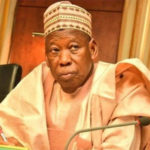
In the wake of the terrorist attacks on Paris and the global outpouring of sympathy and solidarity with France, some people have asked why the world does not similarly stand still for other countries when they suffer equally heinous horrors. Amid the electronic blizzard of Paris-themed hashtags, they question why terror outrages in other countries do not elicit hashtag calls to pray for Beirut or Nairobi or Maiduguri. Some have hinted darkly at the selective humanization of the victims of global terror.
In Nigeria, the argument over who should have the right of first refusal on
Our sympathies or first dibs on our tears is unnecessary. In this blood-dimmed epoch, our beleaguered humanity needs an empathy that transcends national, racial and sectarian borders. Indeed, the Paris attacks claimed victims from more than twelve countries. As their genocidal spree in the Middle East shows, the terrorists do not just hate the West; they are misanthropes that despise humanity.
However, if we must envy a society because its tragedies command the sympathies of the world, while ours barely receive perfunctory mention, let that jealousy also lead to self-examination. However unfair the world media’s coverage of our sorrows is, the truly important thing is not how the world sees us but how we see ourselves. Whether the world perceives our country as a feral post-apocalyptic ghetto is immaterial.
What matters is whether we have acquiesced to barbarism on our shores. In a world that has yet to be convinced that “black lives matter”, how much value does the world’s biggest black nation place on human life?
Friday’s multiple attacks in Paris were reminiscent in style of the simultaneous gun and bomb attacks carried out by Boko Haram in Kano, on January 20, 2012 which claimed over 178 lives. November 28 will mark the first anniversary of the attack on the Kano Central Mosque that killed over 100 people last year. 118 people were killed in the twin bombings at the Jos Terminus Market on May 20, 2014.
There are no monuments in Kano, Kaduna, Jos, Maiduguri or even Abuja commemorating or memorializing the tragedies inflicted upon these locales by terrorists. Life has moved on with the dead buried and their tragic passage swiftly forgotten. This tradition of willful amnesia goes all the way back to the civil war of which there is no totem of remembrance despite its huge cost in Nigerian lives – a deficit that accounts for why some historically-illiterate delinquents today seem eager to reenact that particular calamity.
It took foreign celebrities and heads of state adopting the #bringbackourgirls hashtag initiated by Nigerian activists to virtually shame the Nigerian government into a grudging acknowledgment of the abduction of over 200 girls from Chibok after a more than two-week silence. There are still those who believe that no abductions took place and that the entire saga was staged to embarrass the Goodluck Jonathan administration. Unhinged partisanship has hurt us as badly as terrorism. The BBOG movement was persecuted precisely because it refused to abide official indifference and to let the girls slip into our book of acceptable and forgettable abominations.
The fact is that from the “Aluu 4” and the “Apo Six” to the legions of victims of ethno-religious violence and Youth corps members murdered while on national assignment as electoral officers in 2011, far too many atrocities have gone uninvestigated, unpunished, accepted and forgotten. When such savageries become forgettable, they also become permissible and recurrent.
The Stalinist dictum that one death is a tragedy while a million deaths are a statistic is apt. When terror outrages or other forms of violence become so normative that they become statistically banal, we become desensitized to body counts and body bags. As Dele Giwa once wrote, “One life taken in cold blood is as gruesome as millions lost in a pogrom.” He wrote this after an armed police invasion of the Ahmadu Bello University in June 1986 had left several student protesters dead and injured, and, the university authorities bizarrely claimed that “only four” students had been killed. Such inanities still colour official reports of incidents which often strive to downplay casualty figures.
The challenge before us is to promote a life-affirming public culture that dignifies, sanctifies, and protects our existence as Nigerian citizens; a disposition that prevents the casualties of warlords from becoming statistical banalities.
The great powers not only write history; they also script the headlines. The ultimate power is, after all, the ability to shape how reality is perceived.
The hegemony of the Western media means that Western perspectives and narratives understandably dominate the global consciousness. It took al
Jazeera’s emergence during the Second Gulf War to supply an alternative to the American narrative of liberating Iraq and its reportage was so vexatious that it was specifically targeted by US forces seeking to silence an alternate voice. Call it media imperialism or jingoism as journalism.
People tend to tell their own stories. BBC, CNN and Sky News are not going to tell our stories for us or unduly humanize us for the rest of the world. Until we have competent governments for which securing Nigerian lives is a core value; and media machines that can project our stories, narrate our tragedies and triumphs, and humanize us, this pattern of reportage that sees terrorism in Paris as shocking and terrorism in Kano as normal, will continue. This is just the way the world works.
Chris Ngwodo is a writer, consultant and analyst




